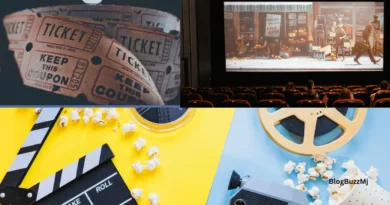Are Books Dying Out? Debunking 5 Myths and Exploring the Future of Books as Hobby
Introduction
In today’s world, with technology advancing at a rapid pace, it’s natural to question the future of traditional forms of media. One question that often arises is whether books are dying out. With the rise of e-books, audiobooks, and online reading platforms, it’s easy to assume that physical books are becoming obsolete. However, the reality is more complicated than that. In this article, We will explore “Are Books Dying Out? ” , debunk some common myths surrounding the demise of books, explore the future of reading and finally Books as a hobby.
Myths Surrounding the Demise of Books
Myth #1: “Print books are dying out and will soon be replaced by digital formats.”
This is a common belief, but the reality is much more complicated. While e-books and audiobooks have certainly gained in popularity, print books remain a staple in the publishing industry. According to a survey conducted by the Pew Research Center, 65% of Americans reported having read a print book in the past year, compared to just 28% who reported reading an e-book.
Print books also offer a unique experience that cannot be replicated by digital formats. Holding a book, flipping through its pages, and even smelling the paper and ink can all contribute to the pleasure of reading.
Myth #2: “Younger generations are not interested in reading books.”
Another common myth is that younger generations, who are growing up in the digital age, have no interest in reading books. However, studies have shown that this is not necessarily true.
For example, a study by the Pew Research Center found that 88% of Americans between the ages of 18 and 29 reported having read a book in the past year, and 75% reported having read a print book. Additionally, the same study found that young adults are more likely to read books than older adults.
Myth #3: “The rise of social media and other online distractions has led to a decline in reading.”
While it is true that social media and other online distractions can take up a lot of people’s time, it is not accurate to say that they have led to a decline in reading. In fact, social media can actually be a tool for promoting reading and literacy.
Many authors and publishers use social media platforms like Twitter, Facebook, and Instagram to promote their books and engage with readers. Online book clubs and discussion groups have also become popular, providing readers with opportunities to connect with others who share their interests.
Myth #4: “Digital formats are cheaper and more convenient than print books.”
While digital formats may be cheaper in some cases, this is not always the case. Additionally, print books offer a tactile and sensory experience that cannot be replicated by digital formats.
For some readers, the act of going to a bookstore or library and selecting a physical book is part of the joy of reading. Additionally, print books do not require a device or internet connection, making them more accessible to some readers.
Myth #5: “The decline of bookstores and libraries is a sign that books are dying out.”
While it is true that many bookstores and libraries have closed in recent years, this is not necessarily a sign that books are dying out. In many cases, these closures are due to factors such as changes in consumer behavior, rising rents, and other economic factors.
Additionally, many independent bookstores and libraries have found ways to adapt and remain relevant in the digital age. For example, some bookstores offer online ordering and delivery, while libraries offer e-books and other digital resources in addition to physical books.
Overall, while the way we read and consume books is changing, the notion that books are dying out is a myth. Print books remain a beloved and enduring form of media, and they continue to play an important role in our culture and society.
The Future of Reading
So, what does the future of reading look like? It’s impossible to say for certain, but it’s clear that physical books aren’t going away anytime soon. While e-books and audiobooks have their advantages, physical books provide a unique and irreplaceable experience that many readers still cherish. Additionally, the rise of independent bookstores and the increasing demand for diverse and inclusive literature demonstrate that there is still a strong and passionate community of book lovers out there.

Another exciting development in the future of reading is the integration of technology. Virtual reality and augmented reality offer immersive reading experiences that allow readers to become fully immersed in the story. For example, a reader could read a book about exploring a new world while simultaneously experiencing that world in virtual reality.
Artificial intelligence is also becoming increasingly important in the future of reading. AI algorithms can analyze a reader’s reading habits and preferences to create personalized reading lists and recommendations. This allows readers to discover new books and authors that they may not have otherwise considered.
Social reading is also becoming more prevalent in the future of reading. Online communities and book clubs provide readers with a platform to connect with others who share their passion for literature. These communities offer readers the opportunity to discuss their thoughts and opinions on books, share recommendations, and learn from others.
Despite the rise of digital reading platforms, traditional print books are still highly valued by many readers. The sensory experience of holding a physical book and turning the pages cannot be replicated by digital platforms. Additionally, print books can be more conducive to focus and comprehension, as they do not have the distractions that can come with digital devices.
Books as a Hobby
Reading books can be a fulfilling and enriching hobby for many people. With books, you can explore new worlds, learn about different cultures, and gain knowledge about a variety of subjects. Whether it’s reading fiction, non-fiction, or autobiographies, books can offer a much-needed escape from the stress of everyday life. Additionally, reading can improve cognitive function, increase empathy, and reduce stress levels. Plus, with the rise of e-books and audiobooks, it’s easier than ever to carry your favorite books with you wherever you go. Overall, books are a fantastic hobby for anyone looking to expand their knowledge, relax, and escape into a different world.
Benefits of Books Hobby
There are several benefits of having books as a hobby, including:
Mental Stimulation
Reading books requires concentration, focus, and cognitive engagement. It can improve memory, critical thinking, and problem-solving skills. Studies have shown that reading can also reduce stress and anxiety, and improve overall mental health.
Knowledge and Learning
Reading books can expand our knowledge and understanding of the world. It can expose us to new ideas, cultures, and perspectives, and help us become more empathetic and open-minded. It can also improve our vocabulary and language skills.
Creativity and Imagination
Reading books can stimulate our imagination and creativity. It can transport us to different worlds and allow us to experience different lives and situations. It can inspire us to write, create art, or pursue other creative hobbies.
Entertainment and Relaxation
Reading books can be a form of entertainment and relaxation. It can provide a break from the stress and busyness of daily life, and offer a chance to unwind and escape into a good story. It can also be a social activity, as books can be shared and discussed with others.
How to Cultivate a Reading Books Hobby
If you’re interested in making reading a hobby, here are some tips for cultivating a reading habit:
Set aside time to read every day: Whether it’s 10 minutes or an hour, make it a habit to read every day. This will help you develop a consistent reading routine.
Find books that interest you: Choose books that you enjoy and that pique your interest. This will help you stay engaged and motivated to read.
Join a book club: Joining a book club can provide accountability and a community of like-minded individuals to discuss books with.
Create a reading nook: Create a cozy and comfortable space to read, whether it’s a corner of your room or a comfy chair.
Use technology to your advantage: E-readers, audiobooks, and online book clubs are all great ways to incorporate reading into your daily routine.
Ways to enjoy books as a hobby
Reading: The most obvious way to enjoy books as a hobby is to read them! You can explore different genres, styles, and authors, and challenge yourself to read more books each year.
Book clubs: Joining a book club can be a great way to meet new people and discuss books with others who share your interests.
Writing: If you enjoy writing, you can use books as inspiration for your own creative writing projects.
Collecting: For some book lovers, collecting books is a hobby in itself. You can collect first editions, signed copies, or books from different countries or time periods.
Book art: Books can also be used as a medium for art, whether it’s creating collages, sculptures, or altered books.
Book Recommendations based on each Topic
Here are some best book recommendations on multiple important topics:
Personal Growth and Self-Improvement
“The 7 Habits of Highly Effective People” by Stephen Covey
“Atomic Habits” by James Clear
“Mindset” by Carol Dweck
“The Power of Now” by Eckhart Tolle
“The Miracle Morning” by Hal Elrod
Business and Entrepreneurship
“The Lean Startup” by Eric Ries
“Good to Great” by Jim Collins
“Zero to One” by Peter Thiel
“The E-Myth Revisited” by Michael Gerber
“The Innovator’s Dilemma” by Clayton Christensen
History
“Sapiens: A Brief History of Humankind” by Yuval Noah Harari
“Guns, Germs, and Steel” by Jared Diamond
“The Devil in the White City” by Erik Larson
“1491” by Charles C. Mann
“The Civil War Trilogy” by Shelby Foote
Science and Technology
“The Double Helix” by James Watson
“The Elegant Universe” by Brian Greene
“The Structure of Scientific Revolutions” by Thomas S. Kuhn
“The Selfish Gene” by Richard Dawkins
“A Brief History of Time” by Stephen Hawking
Arts and Culture
“The Picture of Dorian Gray” by Oscar Wilde
“The Death of Artemio Cruz” by Carlos Fuentes
“The Power of Myth” by Joseph Campbell and Bill Moyers
“The New York Trilogy” by Paul Auster
“The Complete Works of William Shakespeare” by William Shakespeare
Psychology
“Thinking, Fast and Slow” by Daniel Kahneman
“Man’s Search for Meaning” by Viktor Frankl
“Influence: The Psychology of Persuasion” by Robert Cialdini
“Flow: The Psychology of Optimal Experience” by Mihaly Csikszentmihalyi
“Quiet: The Power of Introverts in a World That Can’t Stop Talking” by Susan Cain
Fiction
“To Kill a Mockingbird” by Harper Lee
“The Great Gatsby” by F. Scott Fitzgerald
“1984” by George Orwell
“Beloved” by Toni Morrison
“The Catcher in the Rye” by J.D. Salinger
Memoirs and Autobiographies
“Becoming” by Michelle Obama
“The Glass Castle” by Jeannette Walls
“The Diary of a Young Girl” by Anne Frank
“Wild” by Cheryl Strayed
“Born a Crime” by Trevor Noah
Mystery and Thriller
“Gone Girl” by Gillian Flynn
“The Girl on the Train” by Paula Hawkins
“The Da Vinci Code” by Dan Brown
“The Silent Patient” by Alex Michaelides
“The Cuckoo’s Calling” by Robert Galbraith (J.K. Rowling)
Romance Novels
“Pride and Prejudice” by Jane Austen
“The Time Traveler’s Wife” by Audrey Niffenegger
“Me Before You” by Jojo Moyes
“The Notebook” by Nicholas Sparks
“Outlander” by Diana Gabaldon
Travel and Adventure
“Into Thin Air” by Jon Krakauer
“A Walk in the Woods” by Bill Bryson
“The Alchemist” by Paulo Coelho
“Wild” by Cheryl Strayed
“Eat, Pray, Love” by Elizabeth Gilbert
Philosophy and Religion
The Republic by Plato
The Tao of Pooh by Benjamin Hoff
The Art of War by Sun Tzu
The Bhagavad Gita
Meditations by Marcus Aurelius
Poetry and Verse
Leaves of Grass by Walt Whitman
The Waste Land by T.S. Eliot
The Love Poems of Rumi by Jalaluddin Rumi
Milk and Honey by Rupi Kaur
The Collected Poems of Langston Hughes
Politics and Current Affairs
1984 by George Orwell
The Audacity of Hope by Barack Obama
Fire and Fury by Michael Wolff
Fear by Bob Woodward
The New Jim Crow by Michelle Alexander
Psychology and Mental Health
The Power of Now by Eckhart Tolle
The Bell Jar by Sylvia Plath
The Man Who Mistook His Wife for a Hat by Oliver Sacks
An Unquiet Mind by Kay Redfield Jamison
The Body Keeps the Score by Bessel van der Kolk
Children’s Books and Young Adult Fiction
Harry Potter and the Sorcerer’s Stone by J.K. Rowling
The Hunger Games by Suzanne Collins
The Chronicles of Narnia by C.S. Lewis
A Wrinkle in Time by Madeleine L’Engle
Charlotte’s Web by E.B. White
GrandParents-GrandChild bonding
“The Grandparent Guide” by Arthur Kornhaber
“The Granny Nanny: A Guide for Parents & Grandparents Who Share Child Care” by Lee Edwards Benning
“Grandma’s Wartime Baking Book: World War II and the Way We Baked” by Joanne Lamb Hayes
“The Grandma Book” by Todd Parr
“Chicken Soup for the Grandparent’s Soul” by Jack Canfield and Mark Victor Hansen
Sense of Humor
“Bossypants” by Tina Fey
“The Hitchhiker’s Guide to the Galaxy” by Douglas Adams
“Let’s Pretend This Never Happened” by Jenny Lawson
“Good Omens” by Neil Gaiman and Terry Pratchett
“Me Talk Pretty One Day” by David Sedaris
High-Ticket Closing
“The Closer’s Survival Guide” by Grant Cardone
“High Ticket Sales Secrets” by Shane Foss
“The Psychology of Selling” by Brian Tracy
“The Art of Closing the Sale” by Brian Tracy
“The Challenger Sale” by Brent Adamson and Matthew Dixon
Conclusion
In conclusion, “Are Books Dying Out? ” Definitely Not. People are still reading, and physical books continue to provide a unique and valuable experience for many readers and Books are considered to be an excellent Hobby . At the same time, new technologies are opening up exciting possibilities for the future of reading. Whether we’re reading a physical book, an e-book, or listening to an audiobook, the most important thing is that we continue to engage with and appreciate the power of literature in all its forms.




I unreservedly commend the fine work that has gone into this fantastic article. Your all-encompassing research and insightful analysis are clear testimonials to your work ethic and skill. I am so grateful and humbled by all the hard work you have put into this article – it is truly exceptional. Thank you!